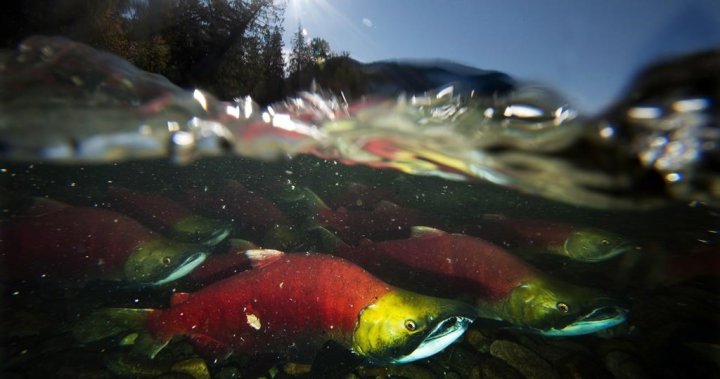
UBC team probing tire chemical linked to salmon death wins $1.8M in funding
Global News
A chemical found in virtually all car tires has been linked to salmon die offs. A B.C. team studying the effects has been granted $1.8M in funding aimed at saving fish.
A UBC-led project aiming to protect B.C.’s declining salmon population by identifying and reducing toxic road runoff, has received a significant financial boost.
The team has been awarded a $1.8 million grant from the provincial and federal governments through the second phase of the B.C. Salmon Restoration and Innovation Fund.
It was one of 58 B.C. projects splitting $86 million in funding for salmon protection and habitat restoration.
The researchers have linked 6PPD-quinone, a toxic chemical shed by car tire, to salmon deaths in Washington state, and are investigating similar connections here in B.C.
“When it serves its function in the tires, it’s protecting the tires from oxidation, it forms a byproduct that’s acutely toxic to salmon and particularly coho salmon,” explained Rachel Scholes, an assistant professor of civil engineering at UBC. “Any time it runs off our roads when it rains into creeks and streams it can cause toxicity … at very low concentrations it actually causes coho mortality.”
The UBC team is now working to identify potential toxic hotspots in the province so they can mitigate the chemical’s deadly effects.
Postdoctoral researcher Timothy Rodgers said the team is sampling water at 20 salmon-bearing streams across Metro Vancouver, with a particular focus on North Vancouver and Surrey. Researchers test the water before, during and after rainfalls to measure levels of the compound in water.
“Everywhere the roads are interacting with watersheds is a place where there is at least some risk,” he said. “They go from very, very low before the storm, then they jump up … by like 60 times. We know we are seeing levels in the stream that are above the lethal concentration for 50 per cent of the salmon … and those are staying elevated for at least a couple of hours.”












